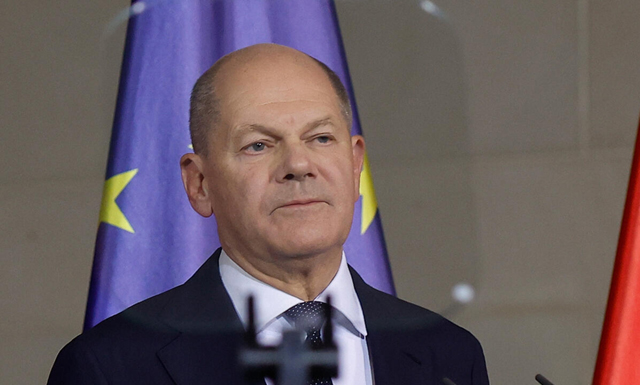News Flash

BERLIN, Feb 16, 2025 (BSS/AFP) - German Chancellor Olaf Scholz may have been dubbed the "Scholzomat" for his stiff personal style, but he has sought to present himself as a safe pair of hands leading a country that prizes stability.
Now that order has given way to economic downturn and political turmoil, centre-left Scholz, 66, is fighting to stage a comeback against conservative Friedrich Merz in the campaign's final week, a battle few believe he can win.
If the polls are right, Scholz will lose the February 23 election to Merz, who has vowed a determined rightward shift in Europe's biggest economy after two decades of more centrist governance under Scholz and his predecessor Angela Merkel.
The antithesis of a flashy political showman, Scholz has a workmanlike, methodical approach to government. The former labour lawyer is given more to detailed policy explanations than snappy soundbites or soaring oratory.
As the leader of the Social Democrats (SPD), Germany's traditional defenders of the working class, he has pledged better wages, pensions and benefits.
Scholz is not known to have built strong relationships with other world leaders, such as the more outgoing French President Emmanuel Macron, though he and former US president Joe Biden are said to have been fond of each other.
Scholz's most notable speech came early in his term three years ago, when he declared Russia's full-scale attack on Ukraine a "Zeitenwende", or epochal shift, and dramatically ramped up defence spending by 100 billion euros.
Despite Germany's strong support for Ukraine since then however, Scholz has also often urged restraint, earning him the monicker of "peace chancellor" at the helm of a party with a long tradition of pacifism and dialogue with Moscow.
- Leadership tested -
The Ukraine war would dominate his term, as soaring energy prices hammered the economy and tightened budgets, fuelling infighting in his three-way coalition with the Greens and Free Democrats.
His conflict-management skills were sorely tested as chief of the fractious alliance, which finally collapsed on November 6, setting Germany on the path to elections.
Reflecting on his own leadership style, Scholz told parliament last week that "especially in times of crisis, prudence, experience and a clear course are essential.
"A chancellor must keep his nerve, especially in difficult situations."
Scholz has gone on the offensive, labelling Merz a "hothead" who can't be trusted to maintain a traditional "firewall" of non-cooperation with the far-right Alternative for Germany (AfD).
Nonetheless, he has maintained a measured tone.
Scholz, a career politician, knows his SPD ultimately cannot burn bridges if it wants to serve as junior partners to Merz's party after the elections.
Political scientist Antonios Souris of Berlin's Free University said Scholz likes to see himself "as someone who is a bit taciturn and thinks things through before he speaks" -- not unlike Merkel.
But Scholz's "lack of communication and this lack of a presence" left him ill prepared to manage and lead a coalition plagued by infighting, Souris added.
To many voters, he said, Scholz seemed "simply overwhelmed with this leadership role" in a quarrelsome alliance. "The Germans just don't like all this fighting."
- 'Embodiment of boredom' -
Scholz lives in Potsdam outside Berlin with his wife Britta Ernst, also an SPD politician. They have no children.
Although he was born in Osnabrueck, he grew up near Hamburg -- a northern river port city whose people have a reputation for being reserved. That reserve, in the minds of many Germans, is something Scholz epitomises.
His father Gerhard Scholz told Bild daily he remembered his son as a studious "know-it-all" who aimed high at an early age: "He told me when he was 12 that he wanted to be chancellor".
As a young man, Scholz became a passionate left-wing activist with an unruly crop of long hair.
He studied law and in 1985 founded his own Hamburg legal firm specialising in labour issues. He was elected to parliament in 1998, now minus the mop of hair.
Scholz became SPD general secretary in 2002. Since then, he has served as mayor of the city-state of Hamburg and labour and finance minister in the so-called grand coalitions under Merkel.
After he took over from her in 2021 he soon faced multiple crises, from the pandemic response to the impact of the Ukraine war. But he never projected the global gravitas of his predecessor.
Scholz's oft-repeated mantra has been a flat promise: "If you ask for leadership, you'll get it."
Once labelled "the embodiment of boredom in politics" by news outlet Der Spiegel, he has tried to spruce up his image on social media platform TikTok.
The odd-ball subject of one video was what Scholz called his "faithful friend" -- a decades-old black leather briefcase in which he carries his files and reading glasses.